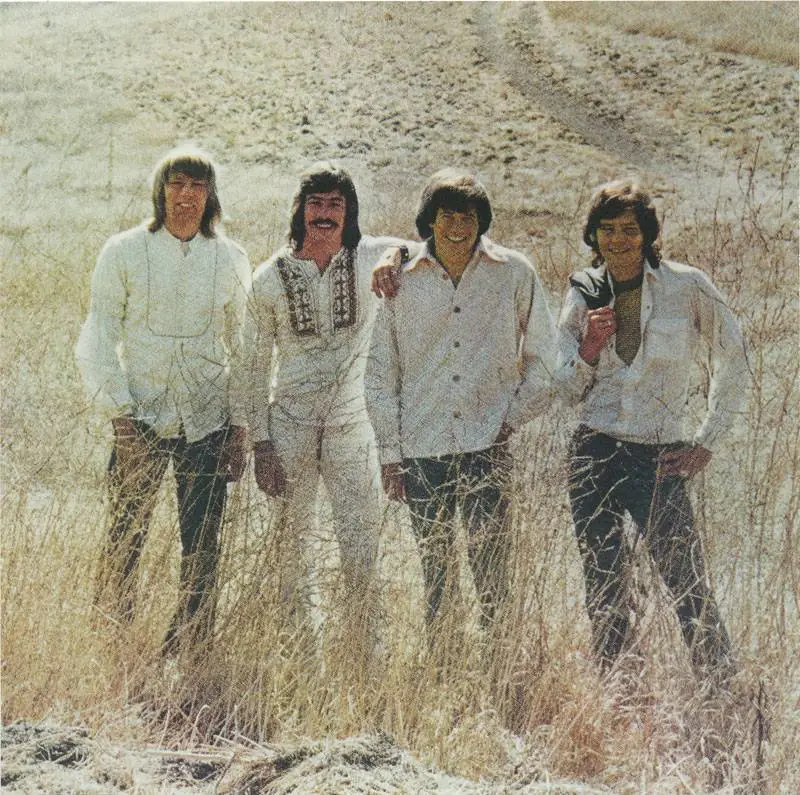
A Gentle Reflection on Love and Longing
In the realm of soft rock and tender ballads, few songs have the enduring, heart-stirring quality of “Aubrey” by Bread. Released in 1973 as part of their album Guitar Man, this poignant piece captures the essence of unrequited love with a simplicity and sincerity that resonates deeply with listeners, especially those who have lived through the ebbs and flows of love over many years.
When Bread, led by the emotive voice of David Gates, unveiled “Aubrey,” it climbed to a respectable position on the Billboard Hot 100, peaking at number 15. While not a chart-topping blockbuster, its impact was quietly profound, weaving its way into the hearts of those who found solace in its gentle melody and wistful lyrics. For many, it became a staple on playlists meant for reflection and nostalgia.
The story behind “Aubrey” is as intriguing as the song itself. It’s said that David Gates was inspired by actress Audrey Hepburn, whose grace and beauty left a lasting impression on him. Although the song’s title is a slight variation of her name, it serves as an ode to an idealized love—one that is more about admiration from afar than an actual romantic entanglement. This longing for something unattainable is a universal theme, one that echoes through the corridors of time and finds relevance in each generation.
Listening to “Aubrey,” one is transported to a place where memories linger like gentle whispers. The song opens with a delicate guitar arrangement, setting a tone that is both melancholic and comforting. As Gates’ voice enters, there’s an immediate sense of intimacy, as if he’s confiding in you alone about his most cherished yet elusive dreams. His lyrics paint a vivid picture of love that might have been—a narrative that evokes feelings of both sweetness and sorrow.
The words are carefully chosen, each line telling a story that many can relate to: that of yearning for someone who remains just out of reach. For those who have loved deeply but silently, “Aubrey” is more than just a song; it’s a mirror reflecting their own stories of affection and solitude. The refrain carries an emotional weight, encapsulating the essence of what it means to hold someone dear in your heart, even when they are not present in your life.
As we delve deeper into its meaning, “Aubrey” also serves as a reminder of times gone by—a nostalgic nod to days when music was crafted with raw emotion and lyrical depth. It’s this very quality that makes it a favorite among older audiences who appreciate music that speaks to the soul rather than just entertains. For them, “Aubrey” is not merely background noise but a companion on quiet evenings or during moments of introspection.
Moreover, the song’s timeless appeal lies in its ability to evoke personal memories. Perhaps it reminds some of a first love or a fleeting moment when everything seemed perfect yet impossibly distant. Its gentle strains invite listeners to reminisce about their own experiences, creating an intimate connection between artist and audience.
In conclusion, Bread’s “Aubrey” stands as a testament to the enduring power of music to capture complex emotions with simplicity and grace. It reminds us that while love may not always be within our grasp, its beauty lies in the longing itself. As we listen to its haunting melody and heartfelt lyrics, we are reminded of our own journeys through love—both real and imagined—and find comfort in knowing that we are not alone in our dreams and desires.
For those who treasure music that touches the heart and stirs the spirit, “Aubrey” remains an everlasting favorite—a gentle reflection on love and longing that continues to resonate through the years.
